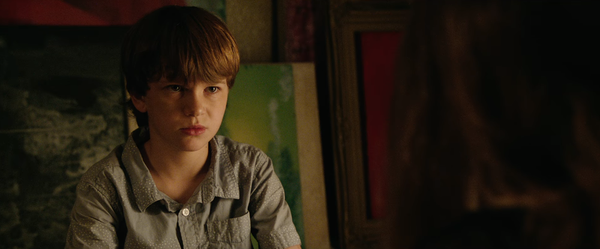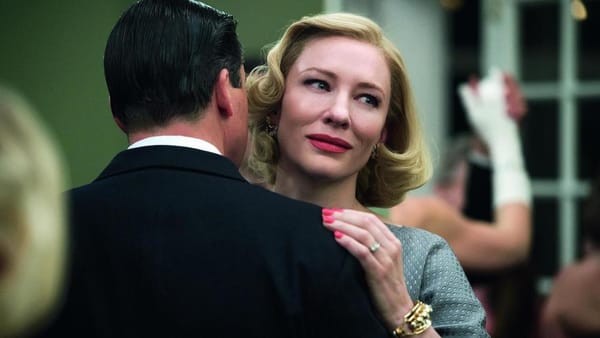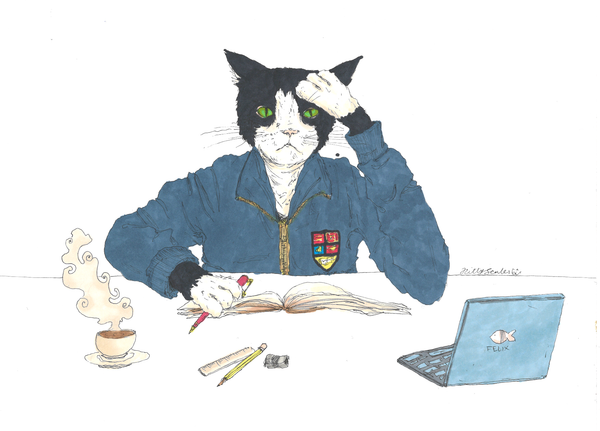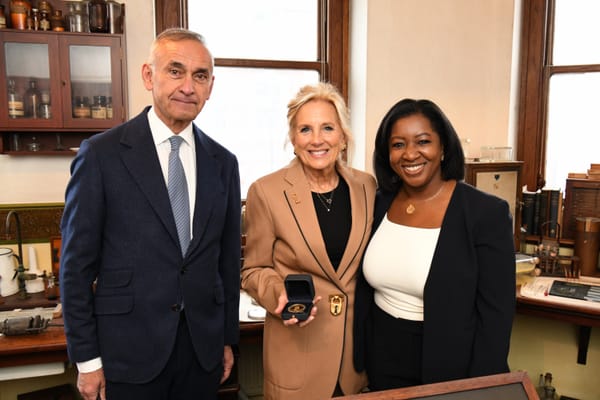Half a century of boldly going...
It was a utopian dream for the era of space races, civil rights marches, racism, and presidential assasinations. But how does Star Trek hold up today, and what is its cultural legacy?
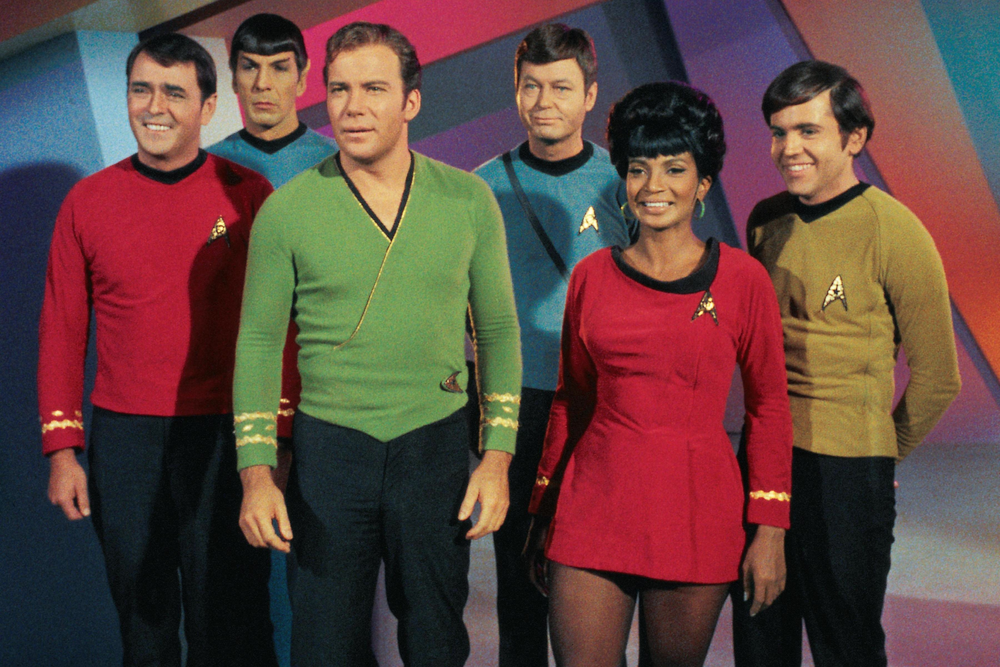
Fifty years ago, as the spectre of the Cold War loomed over the world and the first battles of the civil rights movement were being fought, a corny, slightly overacted show with bold utopian and egalitarian aspirations made its way onto the prime-time lineup. Trek wore its heart on its sleeve, unafraid to be topical and tackle societal issues across the board. Since those tumultuous times, Star Trek has become a cultural cornerstone; offering much to learn from for our tumultuous times. The Original Series was the brainchild of many men and women, chiefly Gene Rodenberry, and did not have an easy time getting made. Its daring and often transparent confrontation of then-contemporary social injustices made studio executives and advertisers uncomfortable; its neck was only ever an inch from the guillotine.
Star Trek has become a cultural cornerstone; offering much to learn from for our tumultuous times.
There’s certainly no denying the risks taken; from TVs first interracial kiss, to an episode where two literally half-black/half-white individuals engage in a pointless race-war, Trek consistently pushed the envelope. In fact, executives tried aggressively to prevent the former, requiring the crew to film a version of the scene without the kiss. However, William Shatner sabotaged every take of that version, forcing the studio to include the momentous action. Such was the atmosphere around production; the cast and crew knew it was an uphill battle, but it was one they were passionate about. It teetered so much on the brink of ‘acceptability’ that the head of the show’s production studio, Lucille Ball (of I Love Lucy fame), had to personally step in to keep it on air. Gradually, however, successive generations across America and the world became enamoured with it and the show went on to spawn a TV and film franchise that continues, in full force, to this day. Arguably the most, if not one of the most successful Science Fiction franchises of all time, it is difficult to deny its pervasiveness and cultural impact. Everyone from Barrack Obama to The Weeknd are Star Trek fans, and you know you’ve made it when you get mentioned in one of Abel’s songs. Even Ted Cruz has admitted to liking it in his own typically mentally gymnastic way. Martin Luther King himself recognised the importance of the series, particularly its diversity, in those early days. When Nichelle Nichols was considering leaving her pioneering role as Lt. Uhura, Dr. King personally convinced her otherwise. Countless scientists will cite it as an inspiration, and when it comes to technology it has become something of a self-fulfilling prophecy.
Martin Luther King himself recognised the importance of the series, particularly its diversity
Automatic doors and iPads were inspired by those first seen on the show, and the inventor of the mobile phone, Martin Cooper, has credited the iconic golden flip communicator from the Original Series as being his inspiration. The Enterprise, itself, has become one of the most instantly recognisable and quintessential ships in our zeitgeist to the extent that NASA’s first space shuttle was named Enterprise, in its honour. Much of Star Trek’s progressive charm comes from the subtlety of its crusade. The bridge crew contains a black woman in a non-service position, an Asian man who plays into no stereotypes, and even a Russian. There is no grand fanfare or song and dance made out of its inclusive status quo. Instead it simply is; the implication being that this is the way things just should be.
On the press tour for The Next Generation, Gene Rodenberry was once mockingly asked about Patrick Stewart, ‘Why is the captain bald, surely they have a cure for that in the future?’ Rodenberry’s telling response was that ‘In the future, nobody cares about baldness’. Much Sci-Fi, especially lately, relies only on fear-mongering and scare tactics in pointing out a perceived problem. The beauty of Star Trek is that it has always offered a dream and hope for the future; in short, a solution. In a day-and-age when world leaders actively oppose unity and make ridiculous statements belittling cooperation and the open-minded, Trek shows us how we can be better; how we need to be better.
Trek’s supposed five year mission has turned into several decades and hundreds of episodes. It can be tricky to pick a starting point. Here are five favourites, from across the franchise.
STAR TREK The City on the Edge of Forever
One of the most iconic episodes of the franchise, City sees Kirk having to sacrifice the woman he loves for the future of mankind. Featuring Joan Collins in a starring role, and penned by famed writer Harlan Elison, the episode is a powerful piece of television. It spans eons, involves ancient beings, time travel, and drug-addled mad men, yet manages to remain an intimately human story. City on the Edge of Forever stands as a poignant reminder of quality and impact of the Original Series.
THE NEXT GENERATION The Drumhead
An often overlooked gem, The Drumhead, unfortunately, is becoming increasingly irrelevant off-late. The discovery of minor sabotage aboard the Enterprise quickly spins into an out of control witch hunt, as paranoia and xenophobia take hold. A grim caution that nowhere, not even the enlightened Federation, is immune to mistrust, and that victimisation in the pursuit of some ill-defined ‘greater good’ is an easy trap to fall into. High on tension and with superb dialogue, the episode warns that suspicion and vilification are easy; ‘vigilance is the price we must pay’ to stop ourselves.
DEEP SPACE NINE In the Pale Moonlight
Deep Space Nine was always more willing to get into the murkier aspects and conflicted nature of the human psyche. Framed as an intimate confessional from Captain Benjamin Sisko, the episode tells of the increasingly under-handed and corrupt measures Sisko finds himself using in order to turn the tide of a war. A brutal examination of how war leaves no one’s conscience unblemished made all the more potent by an absolutely domineering performance by Avery Brooks.
VOYAGER Tinker, Tenor, Doctor, Spy
Hands down, the breakout character from Voyager was Robert Picardo’s holographic Doctor. He was witty and pretentious, but always rose to the occasion. Basically, he was Space-Frasier. So, naturally, an entire episode dedicated to watching his daydreams manifest is hilarious. Add into the mix a race of aliens watching them, assuming them to be actual events, plotting to attack the ship and you end up with excellent self-contained little farce where Picardo shines.
FUTURAMA \Where No Fan Has Gone Before
Ok, so I guess this one’s cheating, but I’d be remiss in not mentioning it. The episode not only features much of the original cast of Star Trek, but is so full of references and loving parody that it’s an absolute must-watch for anyone interested in Trek. They even remembered to rip William Shatner’s shirt. You’d be hard-pressed to find a better representation of Trek fans.



